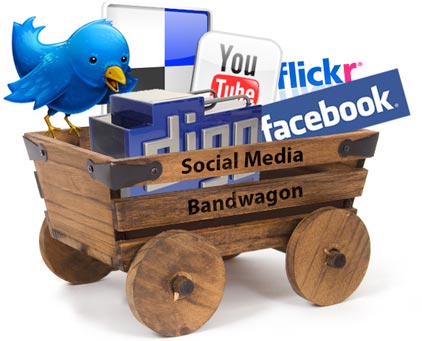Over the last few years, there have been many calls to break the company up. Advocacy groups feel that the company wields too much influence on the market. They believe that the sheer size of this behemoth stifles innovative new competitors.
The fact that Facebook simply bought out WhatsApp and Instagram doesn’t help either. It’s a standard move for businesses to buy out the competition. Critics, however, felt that Facebook should have competed through innovation rather than sheer purchasing power.
As we mentioned, calls to break the company up are nothing new. Chris Hughes, the co-founder of Facebook, sent shockwaves through the industry recently by calling for the same thing.
His op-ed piece in the New York Times at the beginning of May read as a scathing indictment of Zuckerberg’s level of control over the company. Hughes says that Zuckerberg is still the same person he was in college, but that he’s concerned about the influence that the CEO wields.
He’s also quick to point out that he’s had no involvement in the running of the company over the last decade. It seems that there’s little love lost between him and Zuckerberg either. They reportedly last saw each other a couple of years ago.
Is This Just a Case of Sour Grapes?
Some will no doubt see this as a case of sour grapes. Hughes left Facebook to assist on the Obama presidential campaign. He did have a stake in the company at the time. Is this a case of him regretting that decision? Or was there something more to it at the time?
The truth be told, when the piece came out, most people didn’t even know who Hughes was. Hughes was only given a 2% stake in the company. That’s worth a lot today, but it pales in comparison to what the other co-founders received.
It was also nowhere near the 60% controlling interest that Zuckerberg enjoys. Hughes since sold his shares and so currently has no interest in the company.
He Does Make Some Pretty Good Points
Whether you feel that the article was spiteful or not, it has to be admitted that Hughes made some compelling points.
As he pointed out, Zuckerberg’s controlling interest makes him somewhat untouchable. Zuckerberg cannot be removed as CEO, thanks to his majority shareholding. What concerns Hughes even more, though, is that Zuckerberg is essentially in charge of three major communication networks.
Why is that important? Essentially, Facebook’s algorithms determine what we will and won’t see on our pages. This looks harmless, and the company has been tasked to prevent the spread of hate speech, fake news, and so on.
The question you have to ask yourself, however, is who decides what’s going to be filtered out? There is no governmental oversight committee that controls this censorship issue. That makes it simple enough for someone within Facebook to promote their own personal agenda.
Let’s look at a contentious issue here. Like the whaling industry, for example. Now it’s true that a lot of people find the practice reprehensible. But there are also those who rely on it to make a living.
Whatever you believe personally, both sides have an equal right to state their cases. Who’s right is a matter of opinion. But what happens when Facebook decides that one case is more “valid” than the other and promotes stories about the horrors of whaling? As a Facebook user, you’d really only get one side of the story.
It’s about More Than Censorship
Censorship is one thing. To a certain degree, everything that we see in the media is censored. A certain amount of bias is bound to creep in. What’s even more frightening, though, is the sheer amount of data that the company collects. What happens when that data is misused?
We’ve seen a perfect example of that already. The Cambridge Analytica scandal of 2018 showed just how vulnerable we are. Just to recap – Cambridge Analytica is a political consulting firm in the UK.
Ahead of Trump’s presidential campaign, the company had developed a seemingly innocuous app. It was one of those fun “survey” type questionnaires that you see online all the time. Users had to agree to allow the app access to their Facebook info.
That in itself was not a major issue. After all, they were informed about what was happening. What they weren’t informed of, however, was that the company was then able to also access the data of anyone connected to the original user.
So, even if you were friends with someone on Facebook who had taken the survey, your data was exposed. It didn’t make a difference that you never consented. What’s the harm? Even though only roughly 300,000 users took the survey, the data of 87 million users was exposed.
The firm then used this data to determine which tack to take when it came to running Trump’s campaign. That gave their campaign a rather unfair advantage. It could be argued that this was one of the reasons that Trump’s campaign was so successful. Facebook, inadvertently, in this case, influenced the United State’s politics.
Cambridge Analytica Was a Special Case
You might also argue that this was a special case. And that this is not a typical use case. That’s true up to a point. It is true that Facebook could not have predicted that this would happen. What’s also true, however, is that the sheer amount of data gathered by the company itself is staggering.
What’s more telling, however, is what happened to Facebook as a result of this scandal. True enough, there was a large outcry, and Zuckerberg had to explain what had happened. But what damage did it actually do to the company?
Financially, the company was fined around $645,000 by the UK Information Commissioner’s Office. If GDPR had been in place at the time, they would have had to pay out a much larger sum of money.
As it stands, what’s $645,000 to a company with an annual revenue of $13.2 billion?
Financially, the company did also take a hit in terms of advertising. Many advertisers pulled out as a result of the scandal. Many users also vowed never to use the site again, and movement to delete Facebook began.
There Are No Real Alternatives
And here is where we see why one company dominating the market can be a really bad idea. What’s the alternative? Head over to Instagram? Hit Twitter? Instagram is owned by Facebook, and Twitter’s not the same, is it?
The Delete Facebook movement was doomed before it began. Where else would social media junkies go to get their fix? All that really happened is that we’re now a lot more aware of what could go wrong.
If Facebook had more competition, this issue could have been enough to kill it. As it stands, they were able to shake it off. Did they learn their lesson? If the rest of 2018 is anything to go by, no.
Final Notes
Worse than the Cambridge Analytica scandal was yet to come. In December, it was discovered that Facebook had willingly shared data it gathered from users with commercial companies for profit.
Maybe it’s time to analyze exactly how much influence the social media giant has. The scandals that we’ve spoken about here are only a few privacy issues that have dogged the site. It certainly doesn’t seem as though they have learned their lesson. But only time will tell.
Alex Slichnyi, community manager at 99firms.com, is an avid learner of all things IT. He is a savvy SEO specialist who loves traveling because it allows him to experience hands-on the many facets of life. This hands-on approach can be seen in his work, which is meticulously crafted with daring vision by an open, yet methodical mind that likes to probe, test and improve. Communicating and learning are Alex’s core values that drive him forward.





















































































































































































